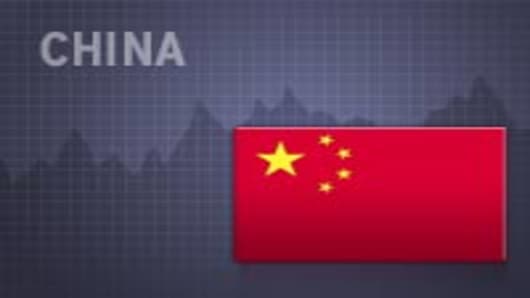The idea is mainly to raise their image as international banks that are publicly traded rather than as state-owned agencies controlled by Beijing. But it is also a learning exercise as China seeks to create "best-of-class" global businesses.
So far, only two Chinese banks -- Bank of China and Bank of Communications -- have branches in the United States, in part because of a legacy of problems in reaching agreements between the U.S. Federal Reserve and Chinese regulators.
But at least a half dozen Chinese banks, including Industrial and Commercial Bank of China and smaller rival Merchants Bank, plan to seek approval from the Fed to launch U.S. branches this year, said Chinese bankers with direct knowledge of the situation.
"We already have Beijing's blessing and what we need to do now is to submit these documents and wait for the Fed to approve," said a Beijing-based Chinese banker whose bank is ready to apply to set up a New York branch.
He noted China's central bank and banking regulator had lobbied Washington very hard in the past two to three years to allow Chinese banks to set up shop in the world's largest economy.
Almost every time U.S. Treasury Secretary Henry Paulson traveled to Beijing to lobby officials for U.S. banks to have wider access to Chinese financial service sectors, Paulson would receive similar requests from his Chinese contacts, Chinese bankers said.
Some Chinese banks had considered expanding in the United States through acquisitions of small U.S. banks or local partnerships with larger banks. However, many of them have become increasingly concerned about investment risks following the meltdown of several major U.S. financial institutions and now prefer to open branches first to test the waters.
"Face Project"
State-controlled Industrial and Commercial Bank of China -- the world's biggest bank by market value -- is in the final stages of seeking approval from the Fed to set up a New York branch.
Merchants Bank, China's biggest non-state lender, has already won Fed approval and is prepared to launch its New York branch before the end of this year. It has secured space in a historic building on Madison Avenue in the heart of midtown, said Jiao Chengyue, the bank's chief representative in New York.
"The New York branch would focus on corporate banking, in particular international trade and finance with big Chinese enterprises that have business ties with U.S. firms," Jiao told Reuters.
He declined to give a timeframe on how long it might take the branch to make a profit. The prospects may be discouraging.
More than two decades after Bank of China, the country's biggest foreign exchange lender, launched its New York outlet, net profits are only between $1 million and $2 million annually, due partly to high operational costs and office rents, according to a Chinese banker close to the branch.
Net profits contributed by Bank of Communications' New York branch to its Shanghai-based parent bank are also "very limited" due partly to high operating costs, said an executive of the bank in New York, who declined to be named or to comment further.
"I think most of them are launching a 'face project,' not to chase profit but to set up a global image," said a Shanghai-based banker at a mid-sized Chinese lender, which has no plan to set up branches abroad.
"It may be too early to do so, as we are not as strong as some Westerners may think," he said, adding that regulatory issues including financial disclosure and U.S. banking rules may also add barriers to Chinese banks operating in the United States, in part because regulatory supervisions and requirement of financial disclosures are comparatively tougher than in China.
Products that Chinese banks have offered to Americans have so far been limited by a lack of experience in developed financial markets such as New York, he said.
Both Bank of China and Bank of Communications still focus on corporate banking business mainly with Chinese clients in New York after decades of operations in the city, due partly to their limited retail presence in the United States.


